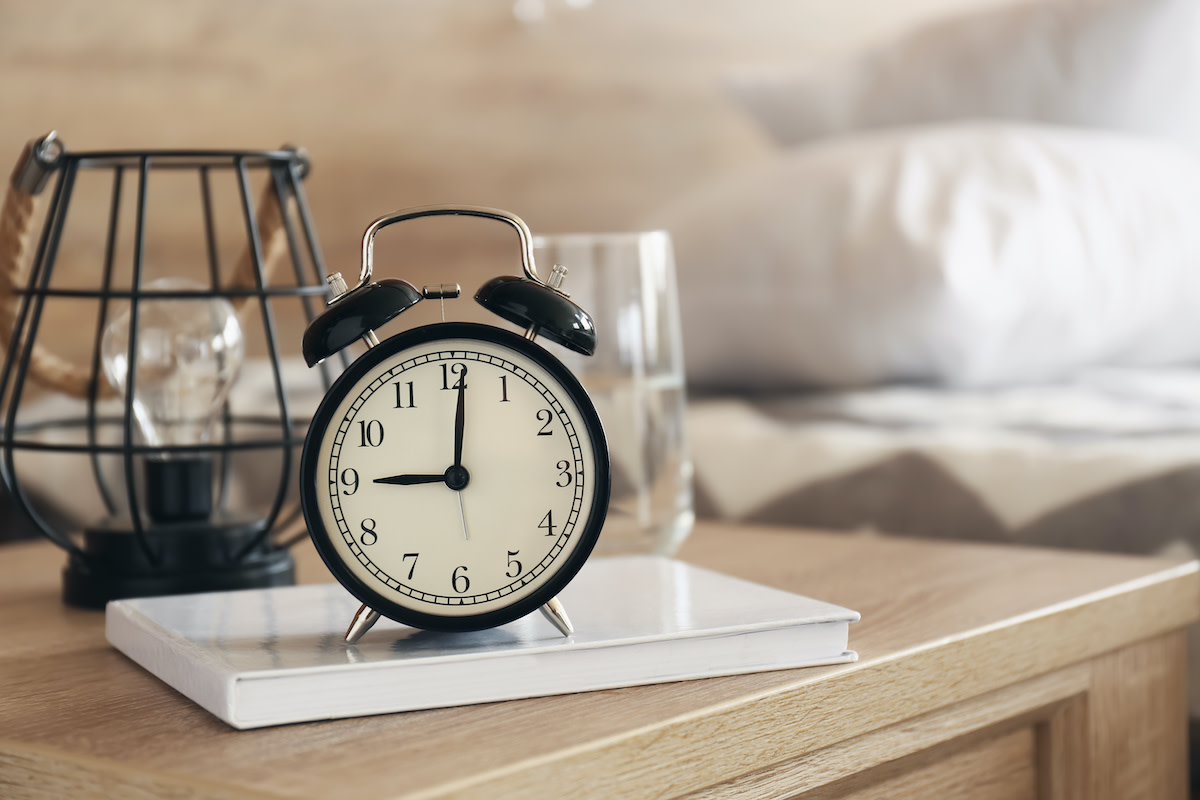Guide to Alarm Clocks: 6 Types of Alarm Clocks
Written by MasterClass
Last updated: Jun 7, 2021 • 3 min read
An alarm clock is a useful tool that helps people wake up from a night’s sleep or a short nap. Alarm clocks have evolved over the years, ranging from old, plug-in clock radios to wireless projection displays. Learn more about the types of alarm clocks and how they can affect your sleep.
Learn From the Best
A Brief History of Alarm Clocks
For centuries, humanity has relied on alarm clocks to jumpstart their day—from roosters to church bells to knocker-uppers (a profession tasked with knocking on workers’ doors with a baton to wake them for work). Here’s a brief look at the history of the alarm clock:
- Plato inspired the alarm clock. One of the earliest conceptions of an alarm clock came from the Greek philosopher Plato, who added a pump to a water clock’s base, which, once filled, would emit a loud whistle like a tea kettle, helping him to get to his daily lectures on time. Plato’s water alarm clock concept was an early inspiration for later versions of the mechanical clock.
- Hutch invents the standard alarm clock. By 1787, American clockmaker Levi Hutchins had invented a standard alarm clock, which did not give the option to set time. Hutchins’s clock was designed to ring once every day at exactly four in the morning, the time he had to wake up to get to work on time.
- The radio alarm clock is invented. While the exact origins of the radio alarm clock are unknown, James F. Reynolds and Paul L. Schroth Jr. are widely believed to have helped incorporate radio functionality into its design in the 1940s. The snooze function would follow nearly a little more than a decade later.
How Alarm Clocks Affect Your Body
Our bodies are governed by our circadian rhythm, the 24-hour cycle that regulates bodily functions, from sleeping to waking. However, alarm clocks can interrupt that natural cycle. The body cycles through multiple sleep stages throughout the night, alternating between light and deep sleep. The body is at its most vulnerable during the sleep cycle, and a sudden, loud alarm sound that jolts you out of a restful slumber can be stressful, raising your heart rate, adrenaline, and possibly leading to blood pressure issues over time.
6 Types of Alarm Clocks
Alarm clocks come in analog and digital forms. Whether you’re a heavy sleeper or just need an alarm to wake you from a light snooze, there are many options available:
- 1. Traditional: A traditional analog alarm clock uses a mechanical gear system, setting off a small hammer to move between two bells at a specified time. These clocks are usually wind-up and don’t rely on batteries for power.
- 2. Clock radio: A clock radio is a device that integrates an alarm clock and a radio receiver. Rather than use a system of gears with bells, the radio will sound at the desired waking time. Early clock radios only contained AM stations, while later versions included FM radio stations. Today, modern clock radios are mostly digital and function mainly as clocks with alarm options.
- 3. Dual alarm clock: These digital alarm clocks allow two different alarm settings, accompanied by a snooze button. They often have LED displays to show the time. Some come in battery-powered models, while others are electric and plug directly into the wall.
- 4. Light-based: A light-based alarm clock uses light instead of sound to wake a person from slumber. Shortly before your set alarm time, the brightness of the LCD display (the wake-up light) gradually increases, mimicking the effect of a sunrise and helping you rise naturally rather than shocking you awake.
- 5. Novelty clock: Novelty alarm clocks function as regular alarm clocks but are shaped like different objects (like bananas or hamburgers) or play a number of silly sounds.
- 6. Phone: Some people use their smartphones as a bedside alarm. You can download a clock app to customize your morning wake-up call to play your favorite songs, nature sounds, or emit a series of loud beeps.
Want to Learn More About Catching Those Elusive Zs?
Saw some of the best darn logs of your life with a MasterClass Annual Membership and exclusive instructional videos from Dr. Matthew Walker, the author of Why We Sleep and the founder-director of the Center for Human Sleep Science at the University of California, Berkeley. Between Matthew’s tips for optimal snoozing and info on discovering your body’s ideal rhythms, you’ll be sleeping more deeply in no time.
